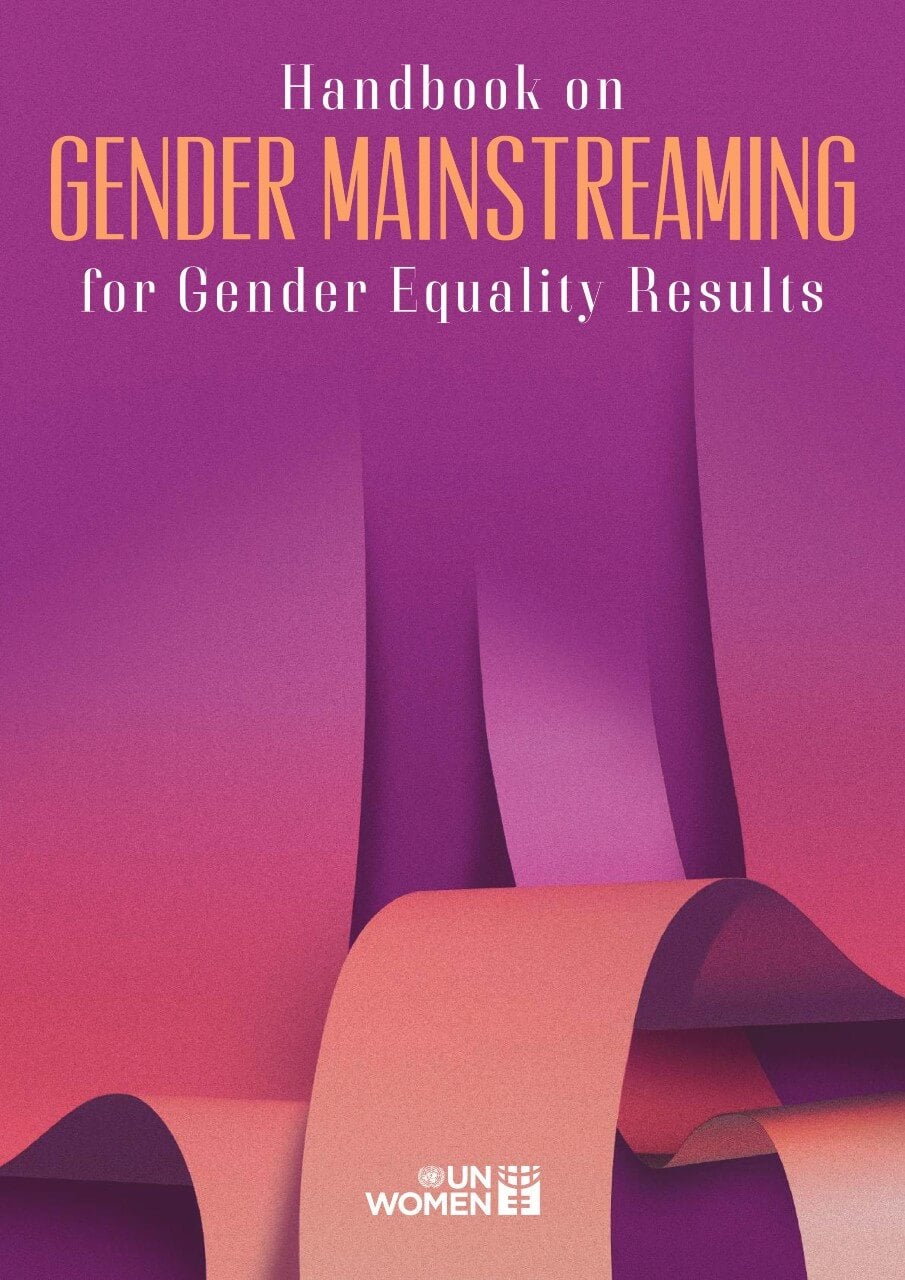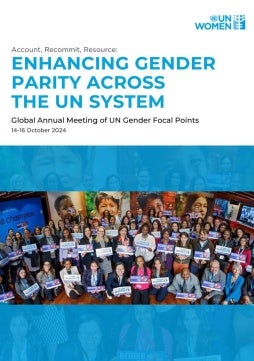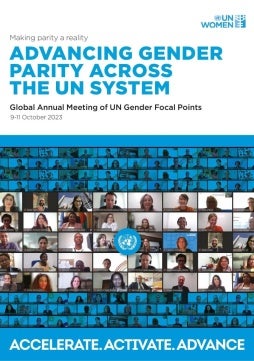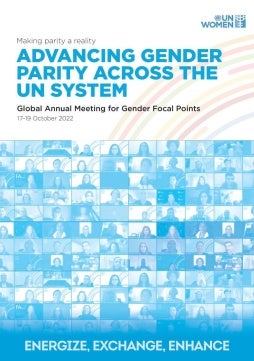Handbook on gender mainstreaming for gender equality results
The year 2022 marks the 25th anniversary of the adoption of the United Nations Economic and Social Council's agreed conclusions on gender mainstreaming, an opportune moment to reflect on the gender mainstreaming strategy, and offer guidance on its effective implementation at national, regional, and global levels.
Gender mainstreaming continues to be the core strategy to accelerate progress on gender equality, including in the context of the Beijing Platform for Action, the 2030 Agenda for Sustainable Development, and Our Common Agenda where the emphasis is on a new social contract that is inclusive of women and girls.
This handbook identifies the key concepts, principles, and approaches underlying gender mainstreaming. It outlines opportunities to apply gender analyses across different contexts and manage for gender equality results. It also illustrates how to identify opportunities for organizational change, enhance financing for gender equality, and strengthen monitoring and evaluation for the oversight of the results of gender mainstreaming.
While the handbook is focused specifically on the more traditional areas of development policy and practice, the discussions, findings, and recommendations are equally applicable in the context of humanitarian responses and programmes in conflict and peace-building contexts.










